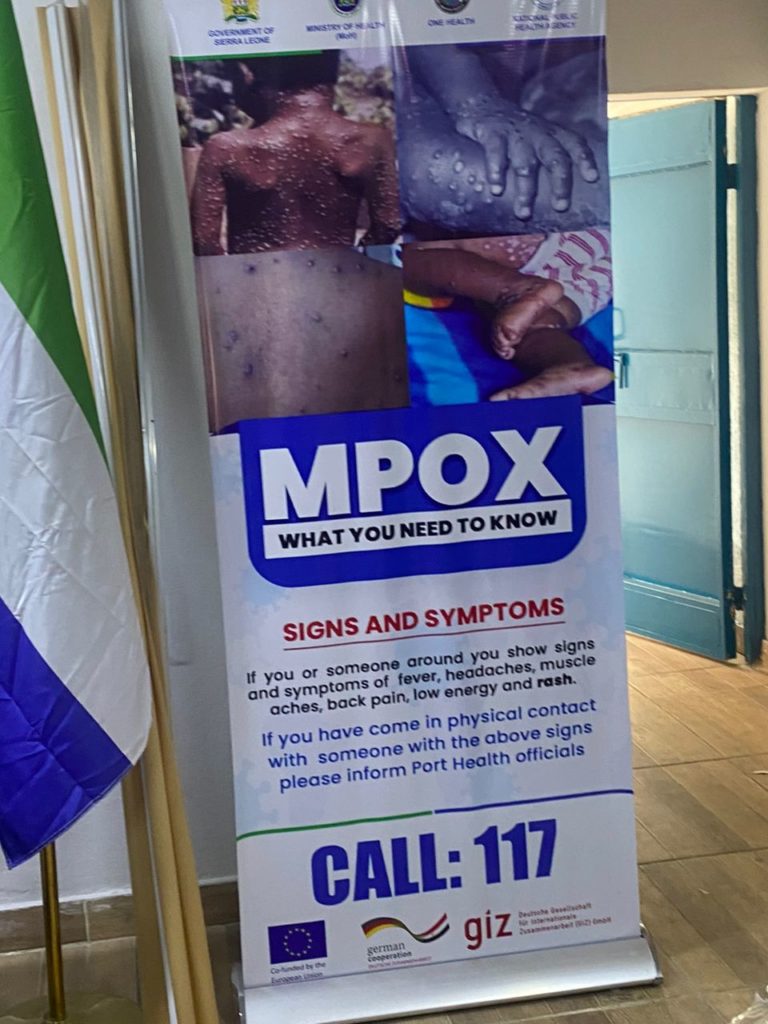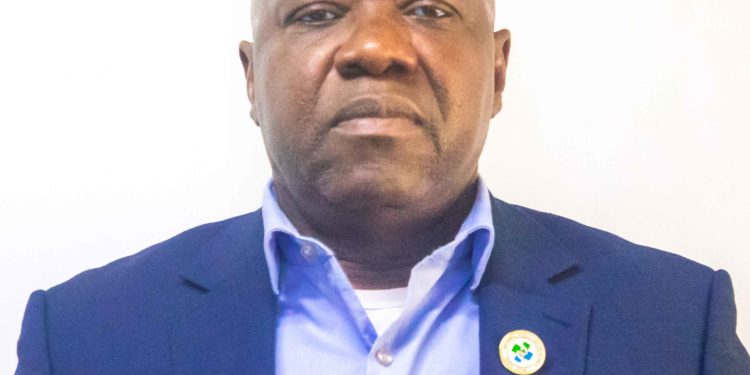By Emma Black
Sierra Leone has not recorded any confirmed case of Mpox, Prof. Foday Sahr, the Executive Director of the National Public Health Agency (NPHA) has said.
Prof. Sahr said the public health agency remains on high alert and will is embarking on its surveillance efforts and cross-border collaboration to detect and respond to any potential cases.
It could be recalled that sometime in September, there were rumors of suspected cases of Mpox in Sierra Leone, which sparked concern among the public.
Prof. Sahr, in an exclusive interview with this reporter, refuted those rumors, describing them as false and unsupported by evidence.
Prof. Sahr addressed misinformation circulating on social media, where images were falsely attributed to Mpox cases in Sierra Leone. He clarified that one particular case in Kono, which sparked widespread concern, was thoroughly investigated and found to be false.
“We dispatched a medical team to Kono after receiving reports of a man suspected to have Mpox. Samples were collected, tested at the infectious disease laboratory at the 34 military hospitals for analysis, and even sent abroad for verification, all results confirmed that it was not Mpox,” he explained.
Sadly, the man in question passed away from an unrelated illness. Prof. Sahr expressed confusion over the origins of the misleading images shared on social media. He said despite the false alarm, the National Public Health Agency has maintained a robust response plan.
Mpox, also known as Monkeypox, is an infectious disease that is caused by the monkeypox virus. It symptoms include rash, enlarged lymph nodes and fever. Most people fully recover, but some get very sick, and it can even lead to death.
There is an ongoing epidemic of the virus in several Africa countries, including Sierra Leone’s neighbours Guinea, Liberia and Cote d’Ivoire.
The Africa Centers for Disease Control and Prevention (Africa CDC) in August 2024 declared the outbreak a Public Health Emergency of Continental Security (PHECS), followed by a WHO declaration of same as Public Health Emergency of International Concern.
As of 5th December, 2024, the continental public health agency says 62, 171 cases have been recorded in 20 countries on the continent since January 2024. These include 13, 579 confirmed cases and 1,200 deaths.
In the Mano River Union, Sierra Leone is the only country that has not recorded any case of the disease.
But the country’s public health authorities say they have not been sitting on laurels.
Prof. Sahr emphasized the importance of preparedness, noting that health workers across all levels have been trained to identify the signs and symptoms of Mpox, including fever, headaches, muscle aches, back pain, low energy, and rashes.
“Our team has a comprehensive work plan in place, and we have trained health workers in border districts and provided them with the tools to act swiftly if a suspected case arises. Additionally, we have reviewed and refined our strategies to ensure readiness,” he said.

The government, in collaboration with the Africa CDC and the World Health Organization (WHO), has been proactive in raising public awareness about Mpox. Posters, public health campaigns, and community engagement initiatives have been rolled out to educate citizens on the disease and its symptoms.
Prof. Sahr urged the public to remain vigilant and report any suspected cases to health authorities by contacting the port health officials or calling the toll-free number, 117.
Prof. Sahr concluded by appealing to the public to rely on verified information and avoid spreading rumors that could incite fear or panic, noting that for any information about MPOX and ongoing health efforts, the public is encouraged to visit the National Public Health Agency or contact health officials directly.






















